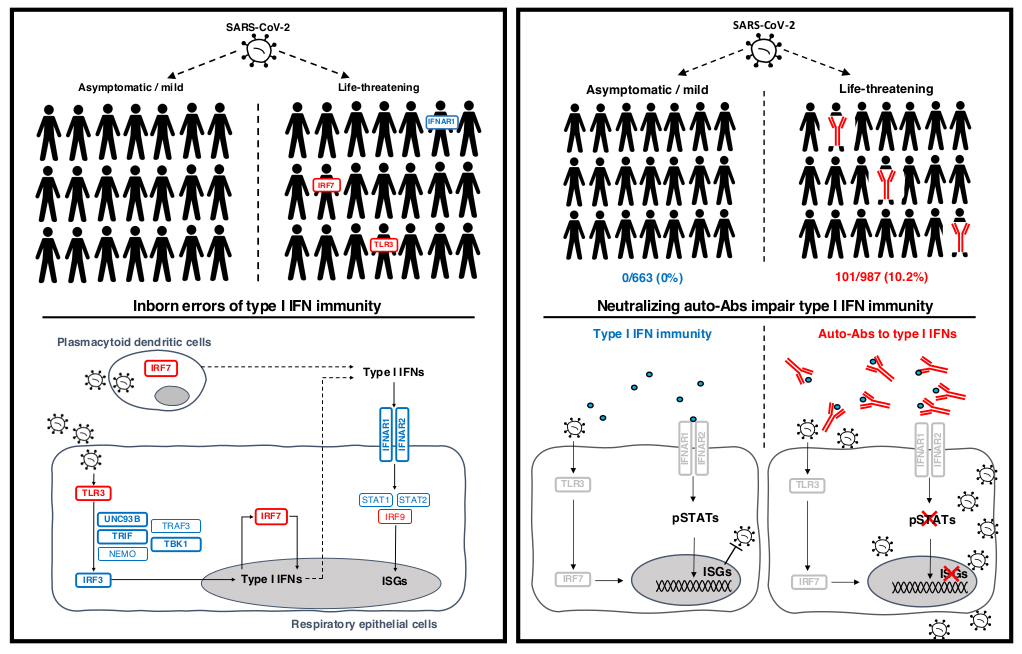More than 10% of young and healthy people who develop severe COVID-19 have misguided antibodies that attack not the virus, but the immune system itself, and another 3.5%, at least, carry a specific kind of genetic mutation.
In both groups, the upshot is the same: The patients lack type I interferon, a set of proteins crucial for protecting cells from viral infections. Whether the proteins have been neutralized by so-called autoantibodies, or were not produced due to genetic mutations, the missing-in-action of the first barrier against SARS-CoV-2 appears to be a common theme among a subgroup of severe COVID-19 sufferers.
Published in two back-to-back papers in Science, and highlighted as one of the Top 10 scientific discoveries of 2020 by the journal Nature, the findings help explain why some people develop a disease much more severe than others in their age group.
One study analyzed the genomes from more than 650 patients who had been hospitalized for lifethreatening pneumonia due to SARS-CoV-2. It also included samples from another 530 people with asymptomatic or benign infection. A significant number of patients (around 3.5%) with severe disease carried rare pathogenic variants in 13 genes that govern the type I interferons. As a consequence, their immune cells did not produce type I interferons in response to the virus.
The second study examined 987 patients with life-threatening COVID-19 pneumonia. More than 10% had auto-antibodies against interferons at the onset of their infection. The majority of them, 95%, were men. Biochemical experiments confirmed these auto-antibodies, which are extremely rare in the general population, can effectively curb the activity of interferon.
The findings point to certain medical interventions to consider for further investigation, including therapies with two types of interferons available as drugs and approved for use to treat certain conditions.
These are the first results being published out of the COVID Human Genetic Effort, an ongoing international consortium spanning over 50 sequencing hubs and hundreds of hospitals around the world.
